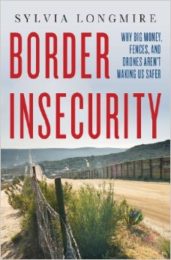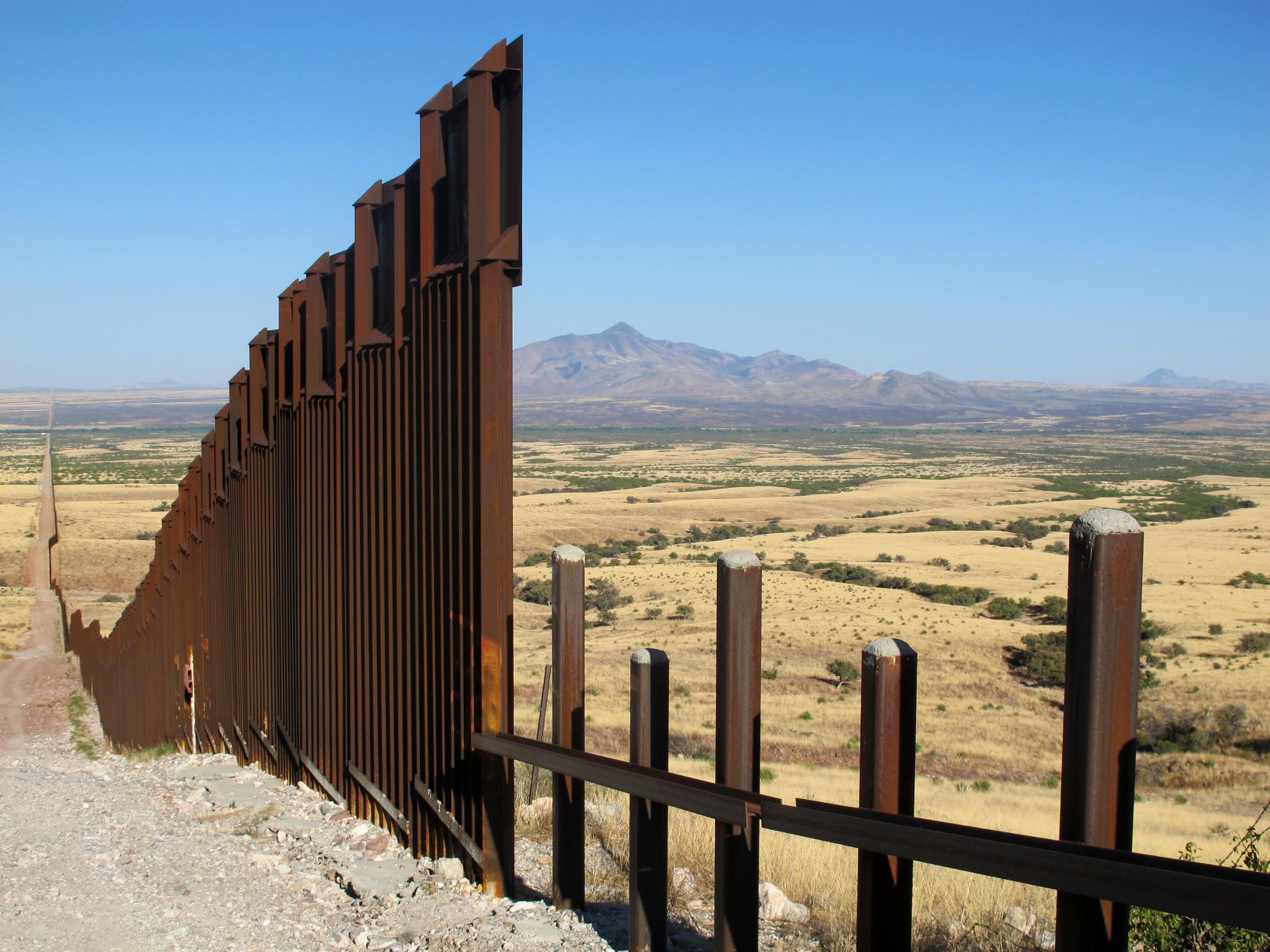Our southern border is just checkers, man; the northern border is chess,” a Border Patrol agent tells Sylvia Longmire, author of Border Insecurity: Why Big Money, Fences, and Drones Aren’t Making Us Safer. A border-state Republican congressman calls it a “Whac-A-Mole game.” But it’s no game for the poor of Mexico and Central America, trying to survive the geopolitical vagaries of the 21st century.
U.S. border policy (if it can be briefly imagined as a coherent policy) isn’t working. It’s not designed to hold off terrorism. It is an abject failure in stopping the threads of cartel drugs and violence spooling into communities across the U.S. And it is making the lives of economic migrants more dangerous and miserable, with adverse consequences for the economies of both the U.S. and Mexico.
 Security analyst and former Air Force intelligence officer Longmire gives us the grand tour of the many elements of the border-security constellation: the security technology, the sometimes laughable border fence, the “boots on the ground” Border Patrol, the drug smugglers, the money launderers, the vigilantes, the would-be terrorists, patrols on the oft-neglected Canadian border initiative, and, at the bottom of the pecking order, the economic migrants.
Security analyst and former Air Force intelligence officer Longmire gives us the grand tour of the many elements of the border-security constellation: the security technology, the sometimes laughable border fence, the “boots on the ground” Border Patrol, the drug smugglers, the money launderers, the vigilantes, the would-be terrorists, patrols on the oft-neglected Canadian border initiative, and, at the bottom of the pecking order, the economic migrants.
There seem to be few, if any, disinterested parties when it comes to homeland security as practiced on the border with Mexico. General Dynamics, Motorola, and Raytheon are doing well by the security build-up. Large and small companies are making border-fence money, estimated to be at least $6.5 billion over the 20 years required to complete the project. The former Wachovia Bank (now Wells Fargo), Bank of America, Western Union, and the sellers of prepaid gift cards all made or continue to make millions from drug money collected in the U.S. and sent or laundered back to Mexico. According to Longmire, U.S. authorities seize less than 1 percent of illicit outbound cash along the southwest border. Mexican cartels send between $19 billion and $29 billion annually to Mexico from the U.S.
So you begin with border-security policy and implementation being manipulated by corporate interests. Add to that the testy dance between the U.S. and Mexico as major trading partners; a different, complicated dance between the U.S. and Canada as trading partners; the U.S. interest in continuing to be the big dog in the western hemisphere; the demand by U.S. agriculture and other industries for cheap labor from the south; legitimate and illegitimate fears about terrorist infiltration; the unquenchable U.S. market for illicit drugs supplied by unfettered Mexican cartels; and the political capital generated largely by the populist right via whipped up anti-immigrant sentiment. Is it any wonder the U.S. has a failed, incoherent immigration/border-security policy?
As our southern border becomes more difficult to cross, the price for crossing goes up and chances of survival go down. Cartels have moved into the human-smuggling business, bringing in would-be border-crossers from Mexico and Central America.
The 9/11 terrorists and the would-be terrorists who followed have generally used visas and entered regular ports by air or car, mostly from Canada. The jingoists of the Tea Party and their fellow travelers, however, have focused on Mexico as the greater threat. Longmire writes that the focus of border security should be on cutting off violent drug trafficking. But we are looking through the wrong end of the telescope. “Cutting off the flow of money to Mexican cartels,” she writes, “hurts them much more than seizing drug loads, yet the border-security rhetoric in the United States continues to focus on drug interdiction rather than strengthening the enforcement of AML [anti-money laundering] regulations.”
Predictably, the poor suffer the brunt of our efforts. As our southern border becomes more difficult to cross, the price for crossing goes up and chances of survival go down. Cartels have moved into the human-smuggling business, charging high rates, imprisoning would-be border crossers from Mexico and Central America until they can pay a ransom in Mexico or in stash houses in the U.S., or requiring border-crossers to act as drug mules or prostitutes.
The rapid doubling and tripling of Border Patrols in the Southwest has resulted in agents who are ill-equipped, untrained, and sometimes corrupt. A recent American Immigration Council study found escalating misconduct and assault complaints filed against agents in the Texas Rio Grande Valley, Tucson, and San Diego.
As a result of the increasing crossing difficulty, immigrants working in the U.S. stay permanently and try to bring their family members here to join them (rather than returning seasonally as in years past). Some become pawns of the drug cartels. Lives become more desperate. Obama’s efforts to be tough on immigration in order to gain immigration reform have resulted in increased arrests and deportations. On May 21, the Border Patrol reported holding 1,000 people in a large gated garage in McAllen, Texas, built to hold 300 people. Border Patrol Agent Chris Cabrera called it “inhumane.”
The National Academy of Sciences found “75 percent of illegal border crossers keep crossing until they make it without getting caught.”
To paraphrase Ma Joad: They keep a-comin’ because they’re the people.
Geoff Rips is a former editor of the Texas Observer and the author of The Truth, a novel.






0 Comments